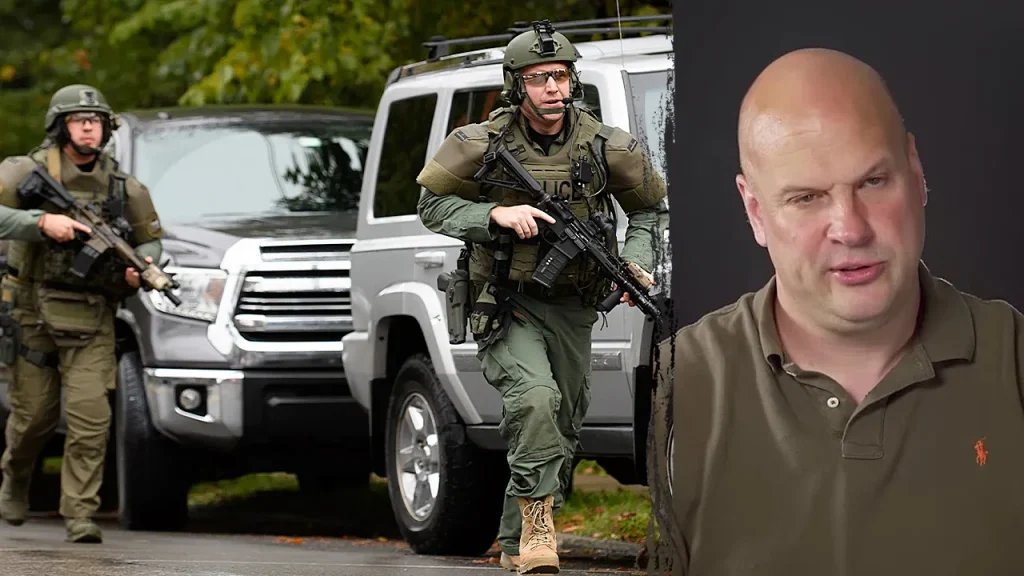Bravery Amid Tragedy: The Untold Story of Pittsburgh’s Tree of Life Heroes
In the quiet Pittsburgh neighborhood of Squirrel Hill, October 27, 2018, began like any other Sabbath morning at the Tree of Life Synagogue. No one could have anticipated that this day would mark the deadliest antisemitic attack in American history, leaving eleven worshippers dead and six others wounded, including four police officers. Now, seven years later, a powerful new documentary titled “Confronting Hate: Responding to the Tree of Life Attack” offers an intimate look at the heroism of first responders who rushed toward danger that day. The film, debuting on the attack’s anniversary, breaks years of silence imposed during the federal prosecution of gunman Robert Bowers, allowing officers to share their stories publicly for the first time.
Among these voices is SWAT Officer Tim Matson, who until now had never spoken publicly about being shot twelve times while confronting Bowers. As documentary maker Jon Becker explains, “For five years, the officers were under a gag order from the federal court while they were charging and trying the perpetrator, so some of the emotional trauma for the first responders was never talked about until now.” The film details how Matson entered a darkened classroom where Bowers had barricaded himself, only to be met with immediate gunfire. His road to recovery has been arduous – more than 25 surgeries and months before he could walk again. Today, while physically improved, he carries the invisible scars of that day, like all officers who responded to the scene. “None of these officers will ever be completely the same as they were before this,” Becker notes, highlighting the profound personal sacrifice made by these officers who “went into that building knowing this guy could kill them to save people that they’ve never even met.”
The documentary doesn’t just chronicle tragedy – it shares stories of survival. Dan Legard and Andrea Wender are alive today because officers charged into the synagogue under fire. As congregants from Tree of Life, Dor Hadash, and New Light gathered for Shabbat services that morning, none could have imagined the horror that would unfold when Bowers entered with a semi-automatic rifle and handguns. The film’s portrayal of both the attack and its aftermath serves as a poignant reminder of human resilience in the face of hatred. It captures not just the immediate response to violence, but the longer journey of healing for a wounded community and those who risked everything to protect it.
“Confronting Hate” also raises important questions about how America treats those who protect it. Becker expresses concern that “We’ve beaten our police down emotionally by focusing on the things they do that are negative,” while overlooking instances of extraordinary sacrifice and courage. The documentary challenges viewers to consider whether we’re providing adequate resources, training, and support to law enforcement. “If we’re not taking lessons learned and using them to help our law enforcement improve and give them the resources they need, we can’t expect a different result the next time something happens,” Becker argues. His perspective suggests that public safety requires not just accountability for police misconduct, but also recognition of and investment in police heroism.
The impact of the Tree of Life attack extends far beyond Pittsburgh. It occurred during a period of rising antisemitism both in America and globally, a trend that has only accelerated in recent years. The documentary arrives at a moment when Jewish communities worldwide face renewed threats and violence, particularly following recent conflicts in the Middle East. Its message about confronting hate feels urgently relevant, not just as a historical record but as a guide for navigating current challenges. In this context, the film’s title – “Confronting Hate” – takes on additional significance, suggesting that responding to hatred requires both immediate courage in crisis and sustained commitment to understanding and addressing its roots.
Seven years after the attack, the Tree of Life Congregation continues its journey of healing. In a statement on the anniversary, they expressed being “deeply moved by the outpouring of support for our synagogue from our community and people across the country and around the world.” They acknowledged their ongoing mourning while emphasizing their commitment to honor victims’ memories “by healing, growing, and strengthening the congregation they loved.” Meanwhile, Robert Bowers was convicted on all 63 federal counts in 2023 and sentenced to death. Yet the congregation’s message emphasizes moving forward rather than dwelling on the perpetrator, concluding with words that echo the documentary’s underlying message: “Your support proves that love is truly stronger than hate.” It’s this spirit of resilience and hope, alongside the unflinching courage of first responders, that “Confronting Hate” ultimately celebrates – a testament to humanity’s capacity to find light even in the darkest moments.


